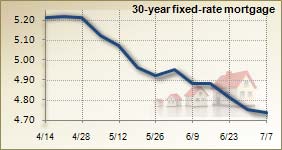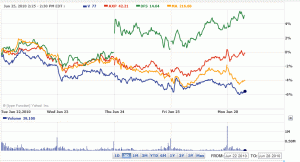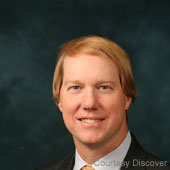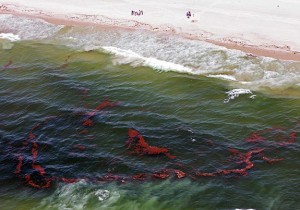Dave Crisp, an amateur metal detector from Britain uncovered 52,500 Roman coins, in Frome, Somerset England. This was one of the largest Roman coin hoards ever found in England. The coins, now in the British Museum, date back to the time of Emperor Carausius, who died in 293 AD.
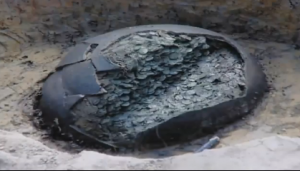
In April of 2010, Dave Crisp was allowed to use his metal detector to search for metal on a neighbors land. He started to hear some odd noises from his metal detector and began digging in that area. As he dug down about a foot, he started to find small coins about the size of a dime.
“I put my hand in, pulled out a bit of clay and there was a little Radial, a little bronze Roman coin. Very, very small, about the size of my fingernail,” said Dave Crisp. “I’ve been detecting for twenty two years and I’ve never had a hoard before this weekend.” A hoard is two or more coins that are over 300 years old at the time of their discovery.
When he continued digging he could see some sort of pot and more coins. At this point that he made a critical decision to stop digging and notify professional excavators. He called archaeologists from the Somerset County Council to come out and take a look. Historians will be able to learn more because these coins were excavated by archaeologists. They were able to photograph and document the process of excavating these coins. When excavating was completed, they found approximately 350 pounds of Roman coins in a large clay pot.
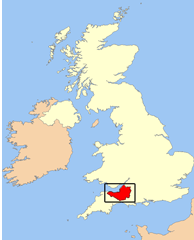
So who owns the find? The land owner or Dave Crisp or England?
Generally, the landowner and the finder come to some sort of agreement as to what they will do with anything that is found before any metal detecting begins. The country’s laws need to be considered as well. England’s Treasure Act of 1996, states that anything found in the earth that is considered an artifact belongs to both the land owner and the finder. They must, however, offer the find for sale to the British Museum at a price determined by the Treasure Valuation Committee. The value of this particular find has been estimated at around $5 million. The proceeds will be shared by the land owner and Dave Crisp.
Worldwide interest in the historical find has inspired the creation of a documentary. The BBC TV is creating a movie called, “Digging for Britain,” which will be released in August of 2010.
Before you go out and buy yourself a metal detector, be sure to study the laws regulating your finds. There are Federal and State laws that help protect and preserve artifacts. You don’t want to find yourself in jail because you found something and inadvertently broke the law.
